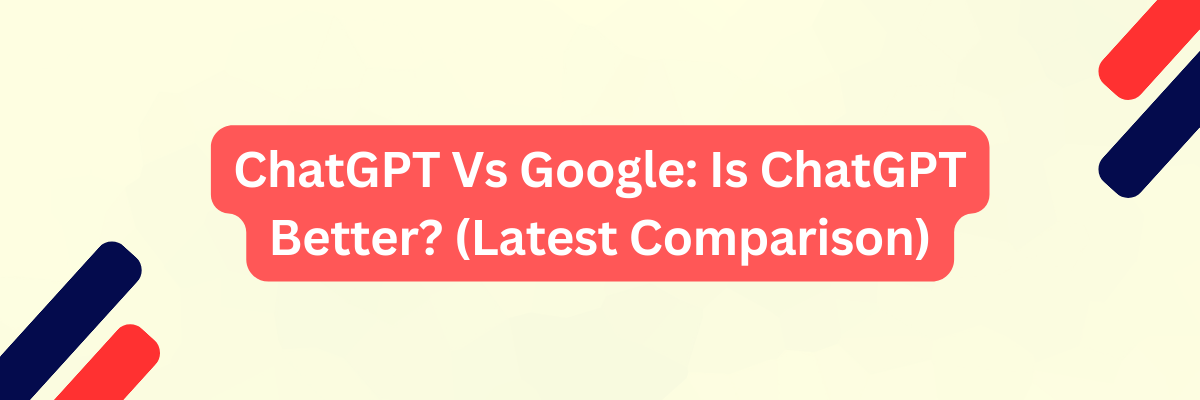
It's important to note that while ChatGPT is a powerful tool, its responses are generated based on patterns it has learned from data and may not always provide accurate or contextually appropriate information. It's essential to review and verify the output, especially in critical applications. ChatGPT is an advanced artificial intelligence (AI) language model developed by OpenAI, based on the GPT-3.5 architecture. It's designed to understand and generate human-like text in a conversational manner. ChatGPT is part of a family of models that have been trained on vast amounts of text data from the internet, enabling it to perform various natural language processing (NLP) tasks.
Google's AI initiatives span a wide range of applications and domains, from natural language understanding and computer vision to autonomous vehicles and healthcare. They continue to play a prominent role in advancing AI research and making AI technologies accessible to developers and users around the world.
We can provide some general information on the strengths and weaknesses of both, which may help you make a comparison based on your specific needs:
-
Natural Language Understanding:
- ChatGPT, powered by GPT-3.5, is designed for natural language understanding and generation. It excels at generating human-like text and answering questions in a conversational manner.
- Google's language models, like BERT and its successors, are highly proficient in understanding context and providing relevant search results. Google Search, Google Assistant, and other Google services benefit from these models.
-
Applications:
- ChatGPT is typically used for chatbots, content generation, and natural language processing tasks. It can generate creative text and engage in more extended conversations.
- Google's offerings are diverse, ranging from search engines and voice assistants (Google Assistant) to language translation (Google Translate), email (Gmail), and more. Google integrates its language models into various services.
-
Training Data:
- Google has access to vast amounts of data from the web and its own services, giving it a substantial advantage in training its models on real-world data.
- ChatGPT, while trained on a wide range of internet text, doesn't have direct access to the same scale of proprietary data that Google does.
-
Customization:
- ChatGPT can be fine-tuned for specific tasks or industries, making it adaptable to various applications.
- Google's models are generally less customizable by individual users but are integrated into specific Google services that may offer customization options.
-
Privacy and Data Usage:
- Google has faced scrutiny over data privacy concerns due to its extensive data collection practices.
- ChatGPT, when deployed, can be controlled by the user or organization, potentially offering more control over data usage and privacy.
-
Accessibility and Pricing:
- Google's services are often commercial and may come with associated costs, depending on usage.
- Access to ChatGPT, as of my last update, was available through OpenAI's platform, which had its own pricing structure.
Ultimately, whether ChatGPT or Google is better depends on your specific use case, requirements, and preferences. Google's services are integrated into a wide range of applications, while ChatGPT may be more suitable for custom conversational AI solutions and creative text generation. Be sure to consider factors like data privacy, customization options, and pricing when making your decision. To get the most up-to-date and detailed comparison, you should consult the latest information available as of 2023.

 Register
Register Sign in
Sign in



